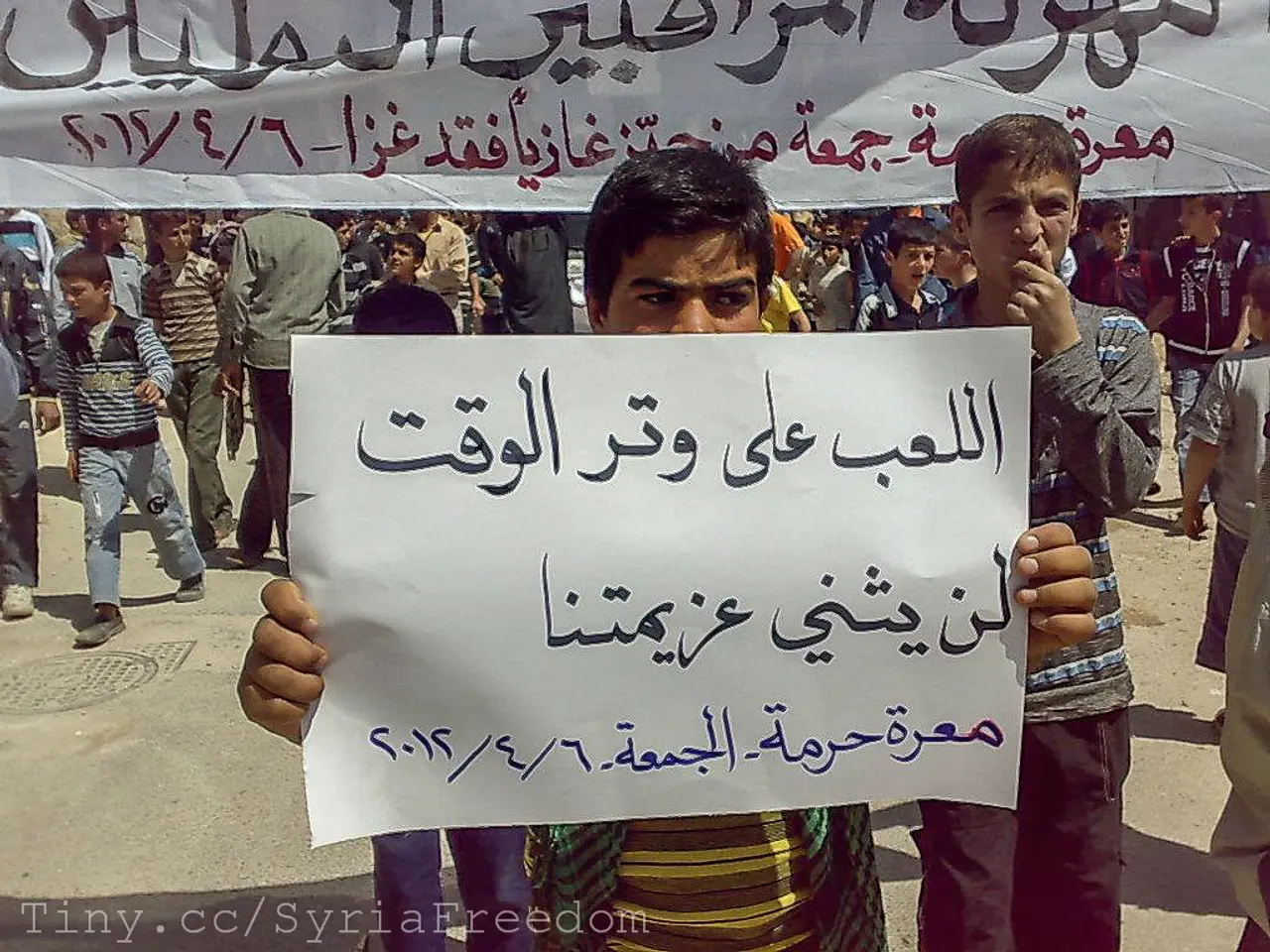Hamas Frees Three Captives
In a significant development, a ceasefire agreement has been reached between Israel and Hamas, lasting for six weeks. This agreement comes after weeks of intense conflict in the Gaza Strip, a coastal region located between Israel and Egypt, with a population of over 2 million Palestinians.
The Gaza Strip is governed by the organization Hamas, which fights for a Palestinian state and against the state of Israel using violence. Israel, on the other hand, controls who and what enters the West Bank and Gaza Strip. This includes Israeli soldiers, who have been instrumental in enforcing restrictions on the movement of people and goods.
As part of the agreement, Israel has released 90 Palestinians from prisons, and Hamas is expected to release more hostages. This is a crucial step towards reconciliation and peace. More Palestinians are also expected to be released from Israeli prisons during the ceasefire.
The United Nations, an international organization consisting of 193 countries with the goal of maintaining peace, protecting human rights, and promoting global cooperation, has called for all border crossings into the Gaza Strip to be opened. The UN also emphasized the need for more protection for aid workers and trucks delivering humanitarian aid.
In the first days of the ceasefire, nearly 1,000 trucks carrying humanitarian aid have entered the Gaza Strip. These aid trucks are carrying essential supplies such as food, medicine, fuel for vehicles, and containers for housing. The aid is vital for the people of Gaza, who have been severely affected by the conflict.
The negotiations for a ceasefire and delivery of humanitarian aid to the Gaza Strip have been conducted primarily by Qatar and Egypt as mediators between Israel and Hamas. UN organizations such as OCHA, UNICEF, and others have been actively involved, calling for humanitarian access and ceasefire.
Israel is a country in the Middle East with Jerusalem as its capital, where most people speak Hebrew or Arabic. Palestinians, an Arabic-speaking people primarily living in the West Bank and the Gaza Strip, have a complex history with Israel. Many Palestinians were expelled from areas that are now part of Israel after the establishment of the Jewish state following World War II.
The state religion of Israel is Judaism, but Muslims and Christians also live in Israel. Palestinian politicians have some say in governance in the West Bank and Gaza Strip, but Israel also has significant power.
The ceasefire agreement offers a glimmer of hope for peace in the region. It is a testament to the power of diplomacy and the international community's commitment to upholding peace and human rights. As the ceasefire continues, it is hoped that both sides will work towards a lasting and peaceful solution.
Read also:
- Lu Shiow-yen's Challenging Position as Chair of the Chinese Nationalist Party (KMT) Under Scrutiny in Donovan's Analysis
- Central Taiwan Discourse: Disputed Native History Claims by PRC
- Jaipur's Amer Fort experiences a 200-foot section collapse during heavy rainfall, but fortunately, no casualties are reported.
- School mandates for vaccinations in Florida are being terminated, opening a question about whether other states will adopt a similar approach.








